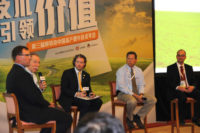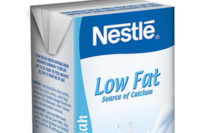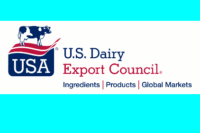California Dairies Inc. (CDI), Visalia, Calif., the state's largest dairy processing cooperative, announced on Feb. 28 that it will increase its processing capacity with the addition of a third evaporator at its Visalia plant. The company said the project "will align CDI’s assets and capabilities to produce the value-added milk powders the world market demands."
CDI's announcement follows that of other dairies that have added drying capacity to meet international demand.
In January, Hilmar Cheese Co. announced plans to build a milk powder processing facility in Turlock, Calif. "We are expanding our ingredients business to meet strong global demand for milk powders,” said Hilmar CEO and President John Jeter. “The U.S. dairy industry, and specifically California, is well positioned to be a consistent supplier to the world."
Dairy Farmers of America's new powder plant in Fallon, Nev., is expected to open in July. According to the company, the $85 million Greenfield project will use a state-of-the-art evaporator/dryer process to produce powders for domestic and export use.
Darigold got back in the game last spring with new dryer
Last April, Seattle-based Darigold, completed the construction of a new milk powder dryer at its Lynden, Wash., processing plant to replace the one destroyed by a fire in February 2012. Darigold, the marketing and processing subsidiary of the Northwest Dairy Association, exports two-thirds of its milk powder production and three-quarters of its whey products. In 2012, Darigold exported 800 million pounds of bulk dairy products or 8,200 20-foot equivalent containers. Its milk powders are used in a wide variety of products from infant formulas to baked goods and nutritional products to confectionery items.
The new dryer will be able to produce 16,800 pounds of powder per hour, approximately 6% more powder annually than the dryer it replaced.
CDI's new dryer in Visalia is expected to be online February 2016. It will be able to produce condensed milk powders, such as non-fat dry milk powder and skim milk powder and whole milk powder for domestic and export markets.
“Management continues to look for new ways to add value to its member-owners' milk through the expansion and improvement of its assets and product offerings,” said CEO Andrei Mikhalevsky.
“The addition of a new evaporator combines increased capacity and improved capabilities to offer CDI the flexibility to adjust product portfolios as market demands shift, which will grow market share and maximize member-owner profits.”
The U.S. dairy's most significant development is making whole milk powders
Writing in the September 2013 Dairy Foods, CEO Tom Suber of the U.S. Dairy Export Council wrote "the birth of the U.S. whole milk powder (WMP) industry to the mix of the most significant, game-changing developments of the last 20 years.
"WMP has always been an afterthought in the United States, so you’re forgiven if the basic stats aren’t front of mind. Global production of WMP is roughly 4.6 million tons annually. Last year, more than 2.1 million tons of WMP was traded around the world, worth in excess of $8 billion – a larger market than skim milk powder by far. It’s mostly used for reconstitution in developing markets where fresh dairy is not abundant. New Zealand dominates the category, with 2012 exports of 1.3 million tons. China is the major importer, with purchases of 406,000 tons last year."
Hilmar Cheese expands Dalhart, Texas cheese and whey plant
Hilmar Cheese also has expanded its cheese and whey processing facility in Dalhart, Texas. The Hilmar, Calif.-based cheese processor said the expansion includes additional capabilities on an existing 40-pound natural American-style cheese production line, and improvements to a variety of processes to better serve domestic and international customers. Each day, the facility processes almost 1 million gallons of milk into cheese and whey products.
On the whey processing side, additional equipment enhanced the whey protein product offering from four varieties to nine varieties. Shipping options expanded to include a Union Pacific rail line to the shipping dock of the facility.
“We continue to invest in cheese to meet the need of our growing customers domestically and abroad,” David Ahlem, vice president, cheese. “One of our core values is constant improvement and innovation. The company walks the talk by investing in new equipment and processes each year,” he said in a statement.



